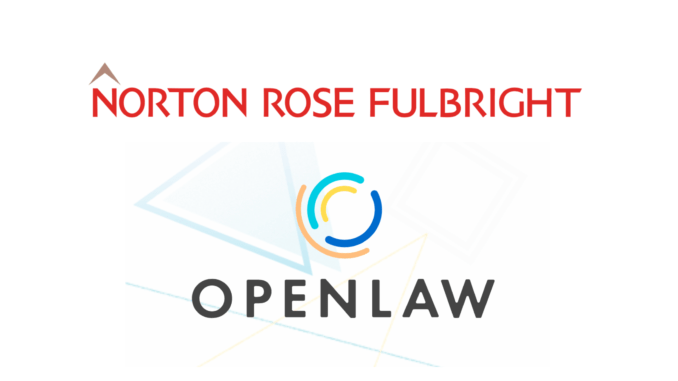
Norton Rose Fulbright and five other leading firms in Canada have conducted a smart contract pilot with OpenLaw that explored the use of the technology in M&A deals. The computable parts of the smart contracts operated via the Ethereum blockchain.
The five other Canadian law firms were:
- Bennett Jones LLP,
- Blake Cassels & Graydon LLP,
- Davies Ward Phillips & Vineberg LLP,
- Fasken Martineau Dumoulin LLP,
- Stikeman Elliott LLP.
The pilot, which started in May last year, was unusual in its scale and that OpenLaw was working with six of the leading law firms in one country all at the same time. The pilot was organised by GenesisB, a blockchain consultancy.
OpenLaw said in a statement to Artificial Lawyer that the experiment ‘sought to explore how law firms can develop smart legal templates on the Ethereum blockchain using the OpenLaw platform. Specifically, the law firms automated an M&A escrow agreement, coding several clauses using smart contract technology. The executed agreement automated issues related to indemnification claims, working-capital payouts and basic disputes using a pseudo-stable coin.’
This, the organisation added, helped the lawyers involved to better understand the realities of ‘creating, testing and using a complex blockchain-based legal agreement’.
OpenLaw noted that using its platform provided the lawyers with a means of contract automation with the additional functionality of a smart contract’s coded clauses. This in turn would produce cost-saving efficiencies for the firms’ clients, it added.
Co-founder of OpenLaw, Aaron Wright, said: ‘While we’re still in the early days of assessing the impact of blockchain technology on the legal profession, projects like this are demonstrating the potential for smart contract technology.’
Meanwhile, Priyanka Desai, also at OpenLaw, told Artificial Lawyer: ‘It’s easy to see how blockchain technology reduces the time and expense of today’s onerous commercial contract process. Law firms and businesses can use OpenLaw to streamline legal automation while setting themselves up for the use of smart contracts, which will lead to more robust automation over the coming years.’
‘While we’re still in the early days of assessing the impact of blockchain technology on the legal profession, widespread adoption is quickly approaching as a new token economy emerges. For OpenLaw this has been eye-opening to see how law firms worked with the protocol and important to see how we can provide an additional set of services to their clients. We hope to partner with other law firms in the future in providing next-generation legal contracts.’ she added.
At present it’s fair to say that the battle for the complex smart contract market is primarily between OpenLaw and Clause, which has just moved to a fully commercial footing.
There are other players in this ‘proto-market’, such as Monax, and of course there are the many thousands of home-made ‘simple’ smart contracts on the Ethereum blockchain used primary for crypto trading, but it’s OpenLaw and Clause that as of today are most likely to take market share among law firms and inhouse legal teams once widespread adoption begins for live client matters.
Thanks for sharing this insightful information.